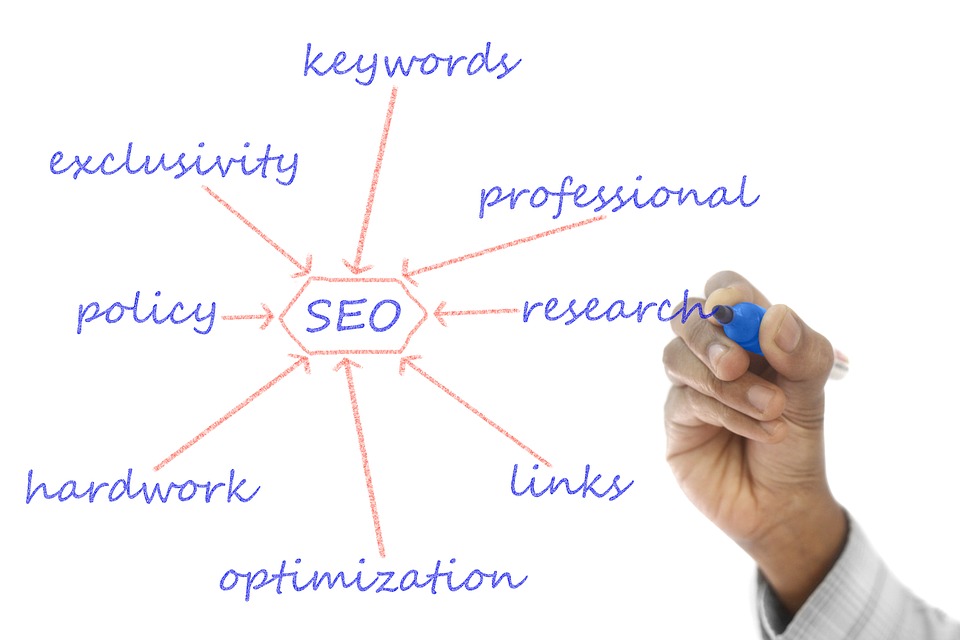What is Content Marketing

Content marketing is the heart and soul of digital marketing. It’s the creative content that isn’t a direct advertisement but still supports the product. This could appear as blog articles, video spots, and social media posts. It typically includes some kind of copy-writing and/or scripting. It typically captures the brand and spirit of the product and communicates the values in a creative way to the customer/client/audience.
At the base of every type of marketing, content is key:
- SEO: Search engine optimization requires great content on every page of a website. Other websites are more likely to link to pages with quality content and search engines are more likely to rank it.
- PR: In order to have an effective PR campaign, you must have great content that is worth talking about.
- Pay-Per-Click (PPC): People will only click on something that captures their attention. That requires content.
- Inbound marketing: Content is key to driving inbound traffic and leads.
- Social media marketing: In order to have effective social media marketing, it must have quality content that is engaging and encourages comments, likes, and shares.
The Basics of Content Creation for Marketing

Content marketing is about storytelling, and storytelling has been around much longer than the internet. It is a more long-term approach to marketing that builds trust and loyalty through the creation of valuable content that is valuable to customers. Content marketing not only establishes loyalty but repairs severed relationships with clients, if need be, as well.
One of the best examples of content marketing pre-internet is when Marvel partnered with Hasbro to create G.I. Joe. The comics were released with the intent to market the G.I. action figures, and it absolutely worked. Seven years after the comics premiered, two out of three boys in their target demographic had G.I. Joe action figures.
There are three ways content marketing can be used right now:
- Online
- Offline
- Hybrid
What you can do with content marketing is extremely broad and marketers are successfully trying out new things every day. In 2013 WestJet offered 12 days of giveaways around Christmas. They called it 12 Flights of Christmas and filmed several of the stories. Twelve flights were chosen and all of the guests were given christmas gifts. It was such a great move it was picked up by the media and it became a marketing phenomenon.
What Makes Good Digital Content for Online Marketing

There are a couple elements that go into making good digital content for your online marketing. For an effective campaign, there must be a merging of technical strategy with creativity. The best content strategy examples have some out-of-the-box thinking combined with a well-executed plan.
- Concept
- Creativity
- Strategy
- Execution
- Maintenance
Creativity The most effective content marketing campaigns are creatively strategized and executed. A lot of companies fall into patterns for marketing products. They will run through the checklist of things that need to be done: x number of social media posts, check, blog post, check, strategically placed advertisements, check. This can be very effective marketing. But if you want to make a splash, you need to look outside the box a bit and try something new.
Strategy For any content marketing campaign, you need a plan. It can be tempting to sit around a table brainstorming and throwing out grand ideas, but every marketing campaign must have goalposts and a timetable for rollout. Just like with any project, It’s easy to get bogged down with your campaign if you don’t have a plan. Content takes time to create, and it’s stressful if you don’t have things prepared, proofed, and approved in advance. Make sure you stay on top of your campaign so it doesn’t get ahead of you.
Execution Execution may be the most important element of the content marketing plan. You can have a great concept, meet all of your deadlines, and publish your content in a timely fashion, but if the execution isn’t there, it will fall flat.
Whatever your content is, it should be proofed, polished, and well-written, illustrated, or created. Publishing bad content is worse than not publishing anything at all. The statement that there is no bad publicity is no longer relevant in the internet age.
Maintenance Once your content is live, don’t just forget about it. Blog posts can be revived and updated with relevant information. Social media posts should not be left alone. Check for comments and shares. Stay involved. People notice when you post and abandon.
And then when the campaign is finished, check into your results. Find out if you achieved your goals. Document all of your learnings for the next campaign.
Content Marketing Strategies for B2B, Ecommerce, and Others

There are many different ways of making money via the internet - you have eCommerce internet stores, Business to Business companies, and bloggers and influencers that make money directly through their website or social media content. Each of these is a very different kind of business, so each requires a different type of marketing strategy.
B2B Content Marketing Strategies
Business to business (B2B) companies are selling their products or services to other businesses. Because of this, their marketing must be very targeted. They need to be seen as a cost-effective authority, easy to work with, and professional. They may not need a major social media presence as their customer is going to be a growing list of businesses developed through targeted outreach and networking.
ECommerce Content Marketing Strategies
Marketing for an eCommerce company is more straightforward. The purpose is to reach potential relevant customers who are likely to purchase the product. The shop owner should focus on the content on each page. It should be informative and thorough and should have relevant keywords in the title and body of the text. Depending on the platform they are using for their shop, they may also be in charge of meta-descriptions and titles.
It would also make sense for the owner of the eCommerce business to work on building a social media following using engagement and relevant hashtags. They might also consider maintaining a blog with interesting and related content to attract potential customers via search engine optimization.
Blogger/Influencer Content Marketing Strategies
For someone with a blog and/or social media following, it’s all about engagement via social media outlets. They must focus on building their following through engagement on their own posts and the posts of others with similar interests. They must also post great content that will encourage folks to follow.
SEO as a Content Marketing Strategy

Content marketing strategy is the heart of search engine optimization (SEO). For a website to rank well, it must be optimized with good quality content on every page. Google bots have become more and more advanced over the last few years and can tell when content is informative and relevant. As such, copywriters are in more demand by website owners and SEO agencies as the demand for content rises.
Blog articles are also an integral part of SEO. Everyday more than 3.5 billion searches are processed by Google. A large percentage of those searches are in the form of questions. Websites want to capture as many of those relevant answers as possible. High authority blog articles that rank for frequently asked questions could potentially receive thousands of hits every day. The best way to do that is to research keywords, and write great content with those keywords and the necessary length of the post, in mind.
Content Marketing Systems and Tools

Navigating content marketing alone can be overwhelming. So, as in every industry, there are tools to help get you moving. Here are some of our favorites:
Buffer
BuzzSumo
Portent
Hemingway App
Ahrefs
Easel.ly
Google Analytics
Buffer
Buffer is a social media management tool. It’s used by four million plus marketers, and is the industry standard. It allows you to schedule posts ahead of time and have all of your social media profiles in one dashboard, to more effectively manage your campaigns. It also has analytics tools so you can more effectively plan future campaigns.
BuzzSumo
BuzzSumo is a powerful tool that allows you to track keywords to find the most relevant and valuable for your needs. You can analyze your use of the keywords and you can analyze the work of your competitors. The tool also enables you to identify top performers and influencers in your field and analyzes their use of social media posts and keyword useage.
This tools gives you the ability to strategize everything you post and the reasoning behind it.
Portent
Portent is an idea generator that helps you come up with effective content ideas for your blog and social media posts. If you struggle with brainstorming blog post topics, Portent assists you in breaking through creative blockers and coming up with content.
What you do is type in your keyword and the generator spits out unexpected titles. If at first it doesn’t come up with something appealing, you can continue to refresh the page until a suggestion you like appears Guaranteed: it will be outside of the box.
We tried a search for “marketing” to see if the idea generator had a solid idea for a blog article. It only took three refreshes for it to come up with this original idea:
When Marketing Sends You Running for Cover
We would happily write that article.
Hemingway App
The Hemingway App is a solid tool for someone who may not be a copywriting pro. You load in your article and it highlights the most obvious errors. It will let you know if a sentence is too complex, and will point out words that may have better alternatives.
It is easy to fall into copywriting pits, but this tool can help you feel a little more comfortable before you publish your content.
Ahrefs
One of the most powerful tools for keyword research is Ahrefs. It allows you to track your keywords and backlinks, and those of your competitors. It also makes it simple to search keywords for possible content creation and tells you what chance you have to rank for those. This tool is a must for SEO content creators and a big help for everyone else.
It can be a bit of a learning curve as the tool has quite a few functions, but once you’re on board, you won’t be able to live without it.
Easel.ly
If you’re not a writer, you may still be able to create good written content. But, if you’re not an artist, it is a struggle to create original illustrations and infographics. Enter Easel.ly. This tool offers almost a limitless amount of templates for infographics. It’s fairly simple to maneuver and, without much of a struggle, you’ll be able to produce supporting infographics for your articles.
Google Analytics
Google Analytics is a must for any website owner. This tool allows you to track traffic, where it’s coming from, where it lands, and where it’s going. This is the tool you will use to judge the effectiveness of a marketing campaign and it will help you plan future campaigns accordingly.
It’s a complex and can be confusing initially, but it’s worth learning as it’s the most cohesive and powerful analytics tool out there.
Examples of Effective Content Marketing

Sephora - This is a great example of user-generated marketing. Customers run the blog on the Sephora website and they chat about products and recommendations.
Goldman Sachs - They offer a cohesive “Thought Leadership Hub” on their website with blogs, podcasts, infographics, and videos.
Equinox - Great video is key for this fitness/lifestyle brand. With over 800,000 YouTube views, the videos are directing viewers to the website every day and the business is thriving.
Grindr - The popular dating app has crossed into content marketing with a popular digital magazine and two web series.
The Bottom Line: What Content Marketing Means for You Content marketing is so important for a business. It builds trust, engagement, and a relationship. While it can be an overwhelming area to tackle, it is definitely worth your time to consider it.


